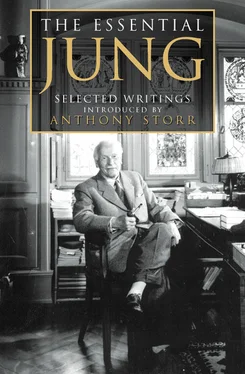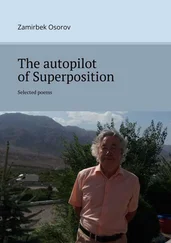1 ...6 7 8 10 11 12 ...28
From “Mental Disease and the Psyche”CW 3, pars. 498–503
In 1907 I came before the scientific public with a book on the psychology of dementia praecox. By and large, I adopted a standpoint affirming the psychogenesis of schizophrenia, and emphasized that the symptoms (delusions and hallucinations) are not just meaningless chance happenings but, as regards their content, are in every respect significant psychic products. This means that schizophrenia has a “psychology,” i.e., a psychic causality and finality, just as normal mental life has, though with this important difference: whereas in the healthy person the ego is the subject of his experience, in the schizophrenic the ego is only one of the experiencing subjects. In other words, in schizophrenia the normal subject has split into a plurality of subjects, or into a plurality of autonomous complexes.
The simplest form of schizophrenia, of the splitting of the personality, is paranoia, the classic persecution-mania of the “persécuteur persécuté.” It consists in a simple doubling of the personality, which in milder cases is still held together by the identity of the two egos. The patient strikes us at first as completely normal; he may hold office, be in a lucrative position, we suspect nothing. We converse normally with him, and at some point we let fall the word “Freemason.” Suddenly the jovial face before us changes, a piercing look full of abysmal mistrust and inhuman fanaticism meets us from his eye. He has become a hunted, dangerous animal, surrounded by invisible enemies: the other ego has risen to the surface.
What has happened? Obviously at some time or other the idea of being a persecuted victim gained the upper hand, became autonomous, and formed a second subject which at times completely replaces the healthy ego. It is characteristic that neither of the two subjects can fully experience the other, although the two personalities are not separated by a belt of unconsciousness as they are in an hysterical dissociation of the personality. They know each other intimately, but they have no valid arguments against one another. The healthy ego cannot counter the affectivity of the other, for at least half its affectivity has gone over into its opposite number. It is, so to speak, paralysed. This is the beginning of that schizophrenic “apathy” which can be observed in paranoid dementia. The patient can assure you with the greatest indifference: “I am the triple owner of the world, the finest Turkey, the Lorelei, Germania and Helvetia of exclusively sweet butter and Naples and I must supply the whole world with macaroni.” All this without a blush, and with no flicker of a smile. Here there are countless subjects and no central ego to experience anything and react emotionally.
Turning back to our case of paranoia, we must ask: Is it psychologically meaningless that the idea of persecution has taken possession of him and usurped a part of his personality? Is it, in other words, simply a product of some chance organic disturbance of the brain? If that were so, the delusion would be “unpsychological”; it would lack psychological causality and finality, and would not be psychogenic. But should it be found that the pathological idea did not appear just by chance, that it appeared at a particular psychological moment, then we would have to speak of psychogenesis, even if we assumed that there had always been a predisposing factor in the brain which was partly responsible for the disease. The psychological moment must certainly be something out of the ordinary; it must have something about it that would adequately explain why it had such a profound and dangerous effect. If someone is frightened by a mouse and then falls ill with schizophrenia, this is obviously not a psychic causation, which is always intricate and subtle. Thus our paranoiac fell ill long before anyone suspected his illness; and secondly, the pathological idea overwhelmed him at a psychological moment. This happened when his congenitally hypersensitive emotional life became warped, and the spiritual form which his emotions needed in order to live finally broke down. It did not break by itself, it was broken by the patient. It came about in the following way.
When still a sensitive youth, but already equipped with a powerful intellect, he developed a passionate love for his sister-in-law, until finally – and not unnaturally – it displeased her husband, his elder brother. His were boyish feelings, woven mostly out of moonshine, seeking the mother, like all psychic impulses that are immature. But these feelings really do need a mother, they need prolonged incubation in order to grow strong and to withstand the unavoidable clash with reality. In themselves there is nothing reprehensible about them, but to the simple, straightforward mind they arouse suspicion. The harsh interpretation which his brother put upon them had a devastating effect, because the patient’s own mind admitted that it was right. His dream was destroyed, but this in itself would not have been harmful had it not also killed his feelings. For his intellect then took over the role of the brother and, with inquisitorial sternness, destroyed every trace of feeling, holdings before him the ideal of cold-blooded heartlessness. A less passionate nature can put up with this for a time, but a highly-strung, sensitive nature in need of affection will be broken. Gradually it seemed to him that he had attained his ideal, when suddenly he discovered that waiters and suchlike people took a curious interest in him, smiling at one another understandingly, and one day he made the startling discovery that they took him for a homosexual. The paranoid idea had now become autonomous. It is easy to see the deeper connection between the pitilessness of his intellect, which cold-bloodedly destroyed every feeling, and his unshakable paranoid conviction. That is psychic causality, psychogenesis.
In some such way – naturally with endless variations – not only does paranoia arise, but also the paranoid form of schizophrenia characterized by delusions and hallucinations, and indeed all other forms of schizophrenia. (I would not class among the group of schizophrenias those schizophrenic syndromes, such as catatonias with a rapidly lethal outcome, which seem from the beginning to have an organic basis.) The microscopic lesions of the brain often found in schizophrenia I would, for the time being, regard as secondary symptoms of degeneration, like the atrophy of the muscles in hysterical paralyses. The psychogenesis of schizophrenia would explain why certain milder cases, which do not get as far as the mental hospital but only appear in the neurologist’s consulting-room, can be cured by psychotherapeutic means. With regard to the possibility of cure, however, one should not be too optimistic. Such cases are rare. The very nature of the disease, involving as it does the disintegration of the personality, rules out the possibility of psychic influence, which is the essential agent in therapy. Schizophrenia shares this peculiarity with obsessional neurosis, its nearest relative in the realm of the neuroses.
From “On the Psychogenesis of Schizophrenia”CW 3, pars. 539–40
Two facts have impressed themselves on me during my career as a psychiatrist and psychotherapist. One is the enormous change that the average mental hospital has undergone in my lifetime. That whole desperate crowd of utterly degenerate catatonics has practically disappeared, simply because they have been given something to do. The other fact that impressed me is the discovery I made when I began my psychotherapeutic practice: I was amazed at the number of schizophrenics whom we almost never see in psychiatric hospitals. These cases are partially camouflaged as obsessional neuroses, compulsions, phobias, and hysterias, and they are very careful never to go near an asylum. These patients insist upon treatment, and I found myself, Bleuler’s loyal disciple, trying my hand on cases we never would have dreamed of touching if we had had them in the clinic, cases unmistakably schizophrenic even before treatment – I felt hopelessly unscientific in treating them at all – and after the treatment I was told that they could never have been schizophrenic in the first place. There are numbers of latent psychoses – and quite a few that are not so latent – which, under favourable conditions, can be subjected to psychological analysis, sometimes with quite decent results. Even if I am not very hopeful about a patient, I try to give him as much psychology as he can stand, because I have seen plenty of cases where the later attacks were less severe, and the prognosis was better, as a result of increased psychological understanding. At least so it seemed to me. You know how difficult it is to judge these things correctly. In such doubtful matters, where you have to work as a pioneer, you must be able to put some trust in your intuition and to follow your feeling even at the risk of going wrong. To make a correct diagnosis, and to nod your head gravely at a bad prognosis, is the less important aspect of the medical art. It can even cripple your enthusiasm, and in psychotherapy enthusiasm is the secret of success.
Читать дальше












